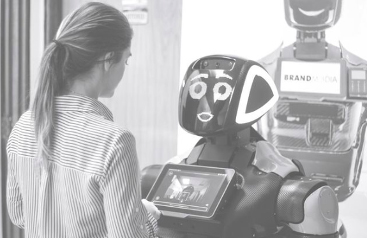None of humanity’s creations inspires such a confusing mix of awe, admiration, and fear: We want robots to make our lives easier and safer, yet we can’t quite bring ourselves to trust them. We’re crafting them in our own image, yet we are terrified they’ll supplant us. You may be worried a robot is going to steal your job, and we get that. This is capitalism, after all, and automation is inevitable. But you may be more likely to work alongside a robot in the near future than have one replace you. And even better news: You’re more likely to make friends with a robot than have one harm you.

What are robots though?
Artificial intelligence is proving to be an invaluable in-house tool. AI robots are being used to carry out
Think of a simple drone that you pilot around. That’s no robot. But give a drone the power to take off and land on its own and sense objects and suddenly it’s a lot more robot-ish. It’s the intelligence and sensing and autonomy that’s key.
Robots have remained largely confined to factories and labs, where they either roll about or are stuck in place lifting objects. But today, advanced robots are popping up everywhere. For that, you can thank three technologies in particular: sensors, actuators, and AI. New technologies promise to let robots sense the world in ways that are far beyond humans’ capabilities. We’re talking about seeing around corners and through walls, and even detecting objects way further in distance.
Increasingly sophisticated machines may populate our world, but for robots to be beneficial, they’ll have to become more self-sufficient. After all, it would be impossible to program a home robot with the instructions for gripping each and every object it ever might encounter. You want it to learn on its own, and that is where advances in artificial intelligence come in. Another tack here is to have a digital version of a robot train first in simulation, then port what it has learned to the physical robot in a lab. They may be getting smarter day by day, but we will have to babysit the robots for the near future. As advanced as they’ve become, they still struggle to navigate our world.
Basically, a robot’s programmers are its parents, slowly and patiently teaching their child how to do the most basic tasks, eventually moving up to more and more complicated tasks, all on a digital platform. Parenting is a full-time job, ask a programmer!